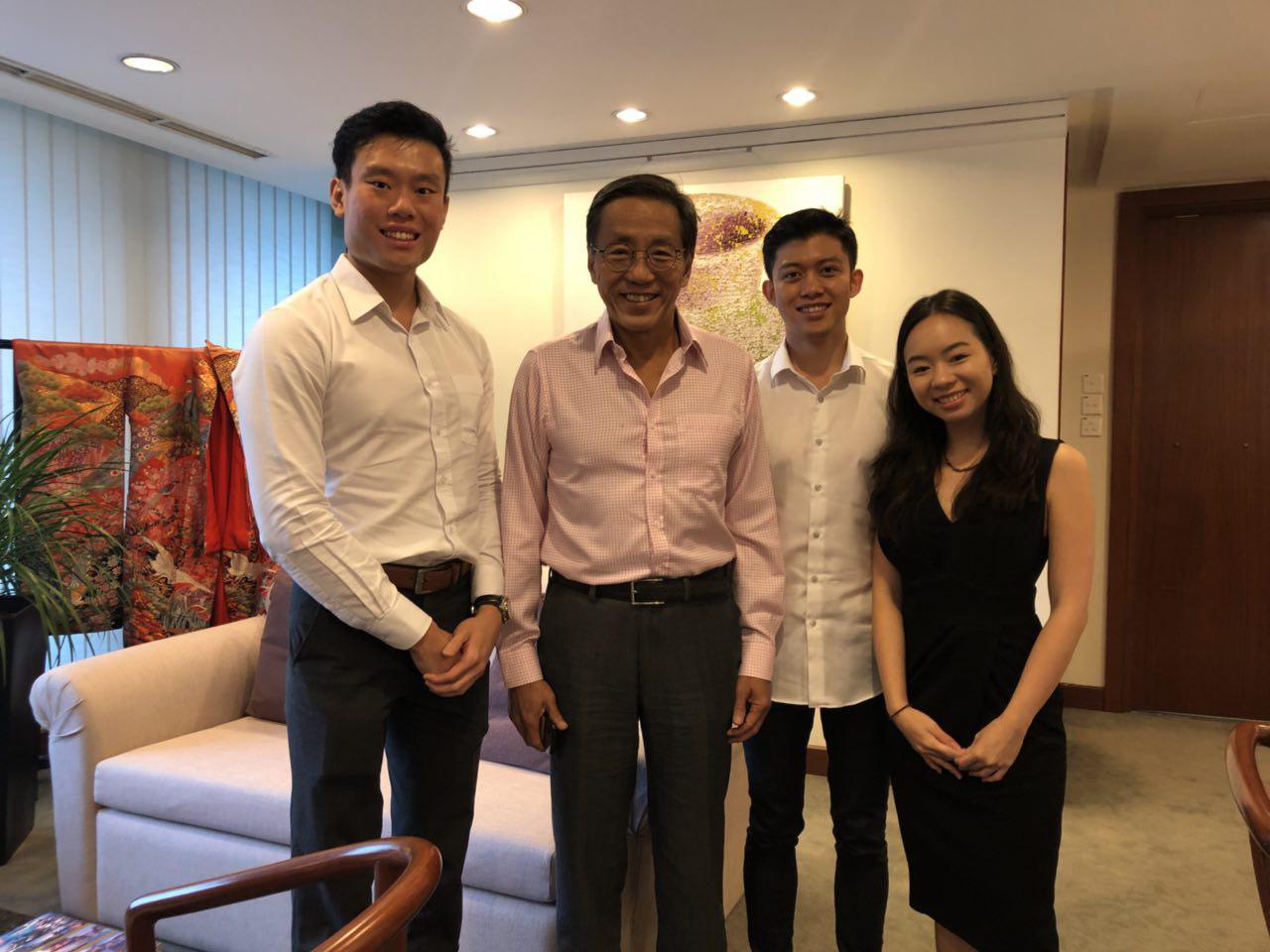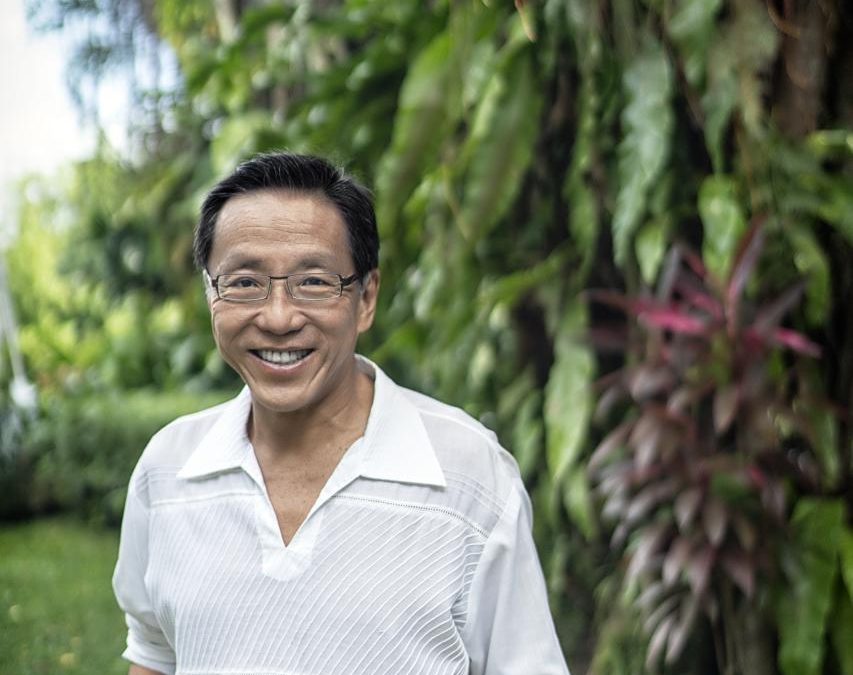Mr. Ho Kwon Ping is the Executive Chairman of Banyan Tree Holdings, a Singapore-based premium hospitality brand with global business interests. Mr Ho. started his career as a broadcast and financial journalist before joining his family business in 1981. In 1994, he launched Banyan Tree Hotels & Resorts and is currently Chairman of the Board of Trustees of Singapore Management University. The Mentoring Circle (TMC) received the invaluable opportunity to speak with Mr. Ho himself last week. Read more to find out what Mr. Ho has to say on mentoring in universities, leadership takeaways and his one advice for youths.
On The Mentoring Circle and Mentoring in SMU:
I think the idea of TMC should be spread to throughout SMU as it is hugely beneficial to everyone. I remember having a buddy (mentor) when I was in my first year at Stanford — my buddy was really helpful and I found it extremely useful. I believe mentoring should be a part of the university’s fundamental ethos. There is an evident need for a short-term buddy system at a university wide level for freshmen and I see it as the next step following the orientation programme. University life is qualitatively quite different — you are treated like a young adult and you are given much more autonomy over your life compared to when you were in Junior College or Polytechnic. Therefore, when students first enter university, they want to know how to navigate the first 3 – 6 months of school. There is a real need across the whole university to do that, and that is one area which we are currently looking at as I have mentioned earlier. There is also probably good need between the faculty so that having someone who is your academic mentor can help you. That can be organized at a school level where the focus is purely on academics.
On Being Mentored and Being a Mentor:
No one particularly cared about mentoring me so I’ve never had a mentor on a formal basis apart from having the two most influential people in my life, my parents, “mentor” me. Having said that, I definitely see the merits of mentorship. Banyan Tree’s systems are not yet sufficiently developed to have good mentoring at the most senior level so I’ve assigned personal coaches to some of my top-level executives. Middle management do go through a mandatory course, and after this course someone will mentor you for an entire year. As for being a mentor, I mentored teenagers aged 13-14 who came from lower income or dysfunctional families while I was at university. Honestly, it did not turn out particularly well as these teenagers became very dependent on their mentors and I couldn’t help them as much as they needed as I got busy with my own work too. This brings me to my next point: boundaries have to be set when it comes to mentoring. I’ve recently been approached by a European organization that focuses on mentorship specifically for multinational corporation CEOs. The objective for this mentoring relationship is very clear and specific. I will not be teaching another CEO the technicalities of their business but rather, mentoring on the softer issues surrounding being a CEO.
On Universities Assisting First Generation Students:
There is an increasing inequality in Singapore. This is happening within the structure of technical meritocracy but the outcome is inequality. I am quite taken by the idea that first generation university students could be having more difficulties compared to other students. Therefore, mentoring for them is clearly highly beneficial. This is a very laudable goal of mentoring and definitely one to think about.
On Measuring Mentorship Engagement Success:
It should be purely subjective. I’m not sure if I want to use objective measures like “Did the mentee get promoted”. Mentorship engagement measurement would instead probably involve doing a survey after the mentorship term and asking if the mentees found it useful. However, I suspect the results would be highly varied as some may find it fantastic, while some may find it absolutely useless. It is hard to measure the relationship apart from getting feedback on the ground. One other possible metric is to also have a shorter mentorship program that lasts 3 months with the option of renewing it before it automatically falls off. If 90% of the mentees and mentors do not want to continue with the relationship, the success of the mentoring relationship is fairly obvious.
On the Most Important Leadership Lesson:
Dream Big and Think Small. I think in the absence of the two, it is going to be difficult to achieve success. There are people who dream big, but they are just dreaming. The process of getting there is actually 90% of the problem. At the same time, if you are great at execution, you can probably be the best manager in the world but you won’t be a great leader or a great entrepreneur as you lack vision. Most people don’t realise that you have to have both the vision and the pragmatism. There is no such thing as being micro or macro as at certain point, you need to learn when to be macro and micro as a leader. Let’s take Banyan Tree for example, some of the staff might be surprised at the level of detail I go into for the hotel business. No one realizes that building a brand is a result of a hundred and one daily decisions. I don’t pick out the colour of the furniture because I like to but because I recognize that these little things make up the big thing! You have to however decide over time, how micro you want to be as if you’re too micro over everything, you will not be able to grow because you would end up becoming a one-man show! On the other hand, you lose control over the definition of the brand or product if you take on a pure macro perspective.
Advice for youths our age?
If I were 25 years-old, I would like to be more active in asking the question why. I have been asking why my whole life, that is why I can’t stop asking why now! As a business leader, we should recognize that business is the biggest driver of change in the world. Therefore, I would like to see youth becoming more outspoken in terms of issues in Singapore – climate change, gender diversity, politics. The responsibility is on all SMU students! Back then when I became Founding Chairman of SMU, our young people were accused of becoming non-vocal with no initiative and so on. Now, I think we are at the stage where our students are clearly as outspoken and articulate as the foreigners. That being said, I think Singapore as a society can afford to be more open than it is today, but without to go to the extreme of the US or Europe.
 TMC remain grateful for Mr Ho Kwon Ping’s precious time and effort in guiding the club for success, and challenging us to always “Ask Why”. Meanwhile, we are already looking forward to our next meeting!
TMC remain grateful for Mr Ho Kwon Ping’s precious time and effort in guiding the club for success, and challenging us to always “Ask Why”. Meanwhile, we are already looking forward to our next meeting!



Recent Comments